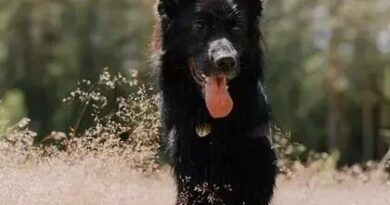What is Ritual
What is Ritual in Dog Training?
Rituals in dog training refer to the structured and repetitive actions that both the trainer and the dog engage in during training sessions. These rituals create a sense of predictability and security for the dog, making it easier for them to learn new commands and behaviors. By establishing a consistent routine, trainers can enhance the learning experience, allowing dogs to understand what is expected of them. This process not only strengthens the bond between the dog and the trainer but also fosters a positive environment where learning can thrive.
The Importance of Rituals in Dog Behavior
Understanding what is ritual in the context of dog behavior is crucial for pet owners. Dogs are creatures of habit, and they thrive on routine. Rituals help dogs feel more secure and less anxious, as they know what to expect. For instance, a daily walk at the same time can become a ritual that not only provides physical exercise but also mental stimulation. This predictability can reduce behavioral issues, as dogs are less likely to exhibit anxiety or destructive behaviors when they have a structured routine to follow.
Types of Rituals for Dogs
There are various types of rituals that can be incorporated into a dog’s daily life. Feeding rituals, for example, can include specific times and methods of feeding that help the dog anticipate mealtime. Training rituals might involve a series of commands or tricks that are practiced regularly. Playtime rituals can also be established, where specific games are played at certain times of the day. Each of these rituals serves to create a sense of normalcy and expectation in a dog’s life, which can lead to improved behavior and overall happiness.
How Rituals Enhance Training Effectiveness
When exploring what is ritual in dog training, it’s essential to recognize how these practices enhance training effectiveness. Rituals can help dogs learn faster by associating specific cues with actions. For example, if a dog consistently hears a command followed by a reward, they will begin to understand the connection between the two. This repetition is key to solidifying learning and ensuring that the dog retains the information over time. Additionally, rituals can make training sessions more enjoyable for both the dog and the trainer, fostering a positive atmosphere that encourages learning.
Creating a Ritual for Your Dog
Creating a ritual for your dog involves identifying activities that both you and your dog enjoy and can commit to regularly. Start by establishing a consistent schedule for feeding, walks, and playtime. Incorporate training sessions into this routine, using the same commands and rewards to reinforce learning. Over time, these activities will become ingrained in your dog’s daily life, creating a sense of stability and predictability. Remember, the key to a successful ritual is consistency, so make sure to stick to the established routine as much as possible.
Rituals and Dog Anxiety
Many dog owners wonder what is ritual in relation to anxiety management. Rituals can play a significant role in alleviating anxiety in dogs. By providing a structured environment, dogs are less likely to feel overwhelmed or stressed. For instance, if a dog knows that they will go for a walk every morning at 8 AM, they can anticipate this event and feel more relaxed. Additionally, rituals can help dogs cope with changes in their environment, such as moving to a new home or the arrival of a new family member, by providing a sense of normalcy amidst the chaos.
Rituals in Socialization
Socialization is another area where understanding what is ritual can be beneficial. Regularly scheduled playdates or visits to the dog park can become rituals that help dogs learn how to interact with other dogs and people. These experiences are crucial for developing good social skills and reducing fear or aggression towards unfamiliar situations. By consistently exposing your dog to various social environments, you can help them become more confident and well-adjusted.
Rituals for Health and Well-being
Incorporating rituals into your dog’s life can also contribute to their overall health and well-being. Regular exercise, mental stimulation, and social interaction are essential components of a healthy lifestyle for dogs. By establishing rituals around these activities, you ensure that your dog receives the necessary physical and mental engagement they need to thrive. This not only keeps them physically fit but also promotes mental health, reducing the likelihood of behavioral issues stemming from boredom or lack of stimulation.
Adapting Rituals as Your Dog Grows
As dogs age, their needs and abilities change, which may require adjustments to their rituals. Understanding what is ritual means being flexible and responsive to your dog’s evolving requirements. For instance, older dogs may need shorter walks or different types of play. It’s essential to monitor your dog’s health and behavior and adapt their rituals accordingly. This adaptability ensures that your dog continues to benefit from the structure and predictability that rituals provide, regardless of their life stage.



